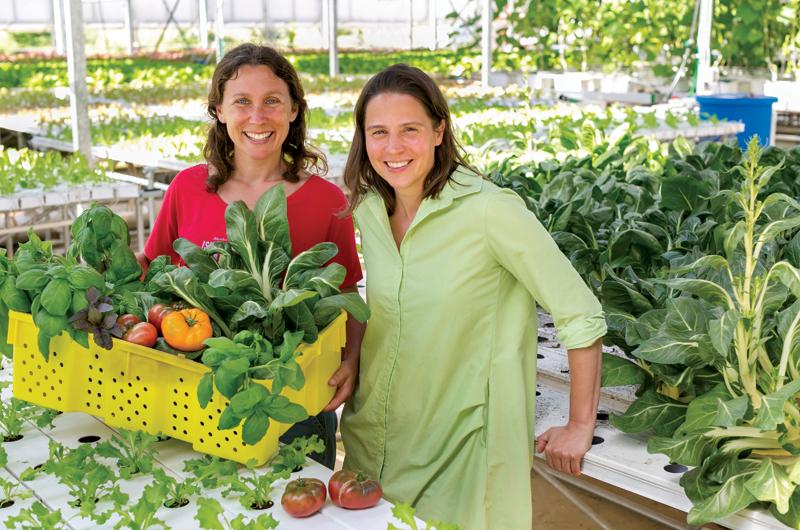
It’s the season of local berries, dairy, meat, fish, and vegetables, found in abundance at roadside stands, farmers’ and fish markets, even the grocery store. All of which makes it seem unlikely that any Island child would go to bed hungry and without access to healthy, locally sourced food.
Yet many do. And it’s why two new publicly funded programs seek to address the disparity. The first, a month-long pilot program sponsored by the Martha’s Vineyard Regional High School and organized by Noli Taylor of Island Grown Initiative (IGI), will serve lunch until mid-August at the Oak Bluffs Library, the Martha’s Vineyard Boys & Girls Club, and the English Language Learner Program at the Tisbury School.
For Taylor, the need to feed Island kids when school is out has been a nagging omission of the Island Grown Schools program, which IGI launched more than ten years ago. At that time, about 12 percent of Vineyard school children qualified for free or reduced-price lunches during the school year. Today, 35 percent of kids count on that program for basic sustenance.
“When we held the Food Equity Summit last fall, we had hoped to find a solution for feeding kids outside of the school session and, of course, the biggest block of time is the summer,” she said.
For Sara Dingledy, the high school principal, sponsoring the pilot program was an easy “Yes.” “To me, it seems a perfect way to give people the resources we have, to give people jobs, and to make sure kids on the Island who need it are being fed.”
The response, said Taylor, has been uplifting with 125 volunteers doing everything from packaging food at the high school cafeteria to delivering, serving, and interacting with the children on site. “We want to serve,” said Reverend Cathlin Baker of the First Congregational Church in West Tisbury, one of many faith-based organizations that supplied volunteers. “We’re all speaking to our congregations about service and acts of compassion, so when these opportunities are created, people are really so grateful to put their values into action. People don’t want to be all talk.”
When Jessie Damroth, who grew up on the Vineyard, returned to become the chief executive officer of the Boys & Girls Club last fall, she quickly saw the need to feed some of the cranky and tired kids who often went to secondary care locations until their working parents got home at 9 or 10 p.m. And even then, it was uncertain whether they would get a nighttime meal.
“We started buying food and we got rid of the vending machine,” she said. “We launched Healthy, Happy Kids, or H2K, which is really about making food available to kids. We were servicing 80 kids every day and now we’re up to 135, so the need is there. Kids were coming up to the counter and asking, ‘Is it really free?’ No kid should feel different and nutrition is a key component to becoming a successful adult and an active member of the community. It’s a major contributing component to later issues like depression or addiction.”
In a parallel move, IGI is tapping into a new effort called the Health Incentives Program, which encourages families to use their monetary SNAP benefits to buy fresh fruit and vegetables. By purchasing healthy, local foods, they can earn an additional $40 to $80 a month depending on family size. And it’s simple – just using their EBT card at participating farm markets automatically enrolls them in the program.
To overcome the inability of many families to get to those vendors during business hours, IGI is bringing a mobile farmers’ market to neighborhoods in the evening. Each week through October 9, a refrigerated van full of local produce will stop at a variety of sites, including Woodside Village, the Oak Bluffs Library, Hillside Village, the Tisbury School parking lot, and on Wampanoag tribal land. (A full schedule can be found at igimv.org.) The produce comes from Morning Glory Farm and IGI’s own hydroponic greenhouse at the former Thimble Farm.
“It’s a tragedy that some of our neighbors face food insecurity when there is such an abundance of good, healthy, locally grown produce, fresh dairy, meat, and fish here,” said Rebecca Haag, IGI’s executive director. “Through our work in the school system we knew this was a growing problem, and working with other committed partners we’re taking some important steps this summer to address hunger across the Island.”






